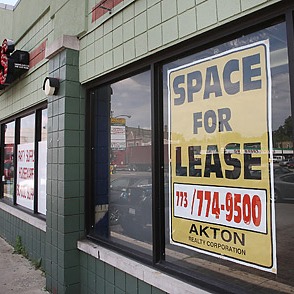 Given that 2011 was a difficult year for many in the business community, a recent report from Fitch Ratings will not exactly bestow confidence on many corporate heads.
Given that 2011 was a difficult year for many in the business community, a recent report from Fitch Ratings will not exactly bestow confidence on many corporate heads.
Fitch recently reported that it expects the volume and size of corporate bankruptcies will double this year.
According to one bankruptcy attorney, â2011 wasnât a huge restructuring year. A lot of companies found short-term fixes, but when things donât get better you need a restructuring to find a long-term fix.â
The recent Fitch prediction notes that while restructuring is not a given to lead to bankruptcy, defaults among all corporate bonds will increase to approximately 3 percent over the next 12 months, an uptick from 1.4 percent last year and 1.3 percent in 2010.
Among the better-known companies to file for bankruptcy in 2011 were:
- American Airlines â At the time of the filing, AA reported it was some $29.6 billion in debt and had $24.7 in assets;
- Borders Group â At onetime the nationâs second-largest book retailer, the company filed for bankruptcy back in February, with Barnes & Noble reaping some of the benefits from its rivalâs actions;
- Integra Bank â The Indiana-based banker had operations in three states and reported assets of $2.42 billion;
- PMI Group â The California-based private mortgage insurer was the nationâs third largest;
- MF Global â This was the most notable Wall Street firm to go down since Lehman Brothers three years earlier.
Fitch believes going forward that businesses carrying a large amount of high-yield and low-grade CCC bonds will be at the greatest risk.
According to the ratings agency, middle market companies (anywhere from $200 million to $1 billion) are most apt to be candidates for bankruptcy given the fact that it is more difficult for them to track down ways of refinancing.
Lastly, Fitch expects the restaurant, retail and consumer products firms to have the worst showing over the next 12 months.
For those businesses, small or large that are looking to avoid a bankruptcy filing in 2012, keep a few factors in mind:
- Have an ironclad investor strategy â While the first round of funding may be relatively easy to come by, where will the second, third and so on come from? Be sure you have a Plan B, Plan C etc. so that you are not left with gaping holes in your revenue stream;
- Obtain a small business loan â Small business loans prove effective over more traditional means of obtaining capital. Along with a quick processing time, you can avoid the requirement of providing any form of collateral given the fact the loan is provided solely on the basis of your credit card sales history;
- Know your limits â While many of us still have that âborrow today, pay back when we canâ attitude, it can get a business owner in a heap of trouble. Make sure you know your financial limits as a business owner so that you can avoid digging yourself too big of a hole to climb out of.
No business owner ever wants to hear the âBâ word, but being prepared for it just in case is a sound business move.
Dave Thomas, who covers among other items starting a small business , writes extensively for Business.com, an online resource destination for businesses of all sizes to research, find, and compare the products and services they need to run their businesses.